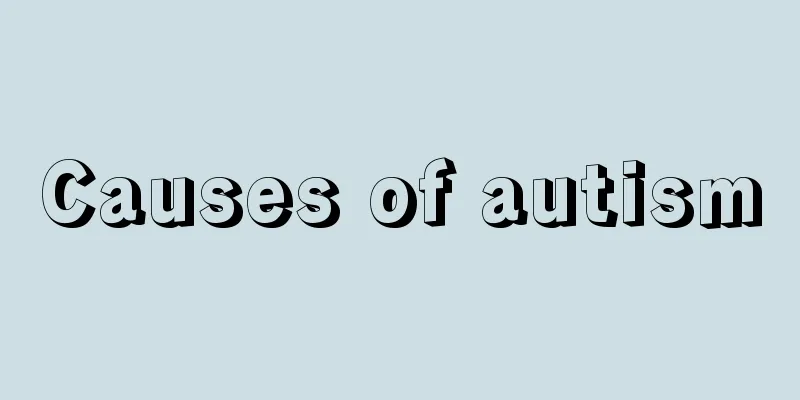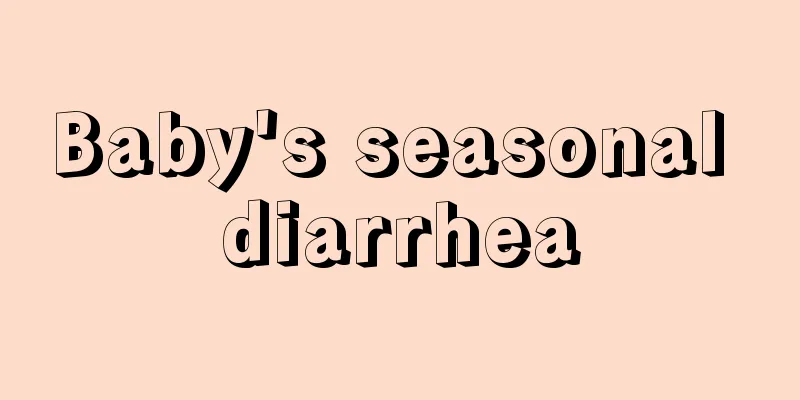Causes of autism

|
From a professional medical perspective, autism is also called autism or autistic disorder. This disease is one of the representative diseases of developmental disorders. In recent years, the incidence of autism has been increasing, attracting widespread attention from society. This disease is a mental and physical illness. The main symptoms of patients are unwillingness to communicate with others, keeping silent, having narrow interests and poor self-care ability, and in severe cases, they may also show a tendency to self-harm. So what exactly causes the emergence of autism? And why has the incidence of autism been on the rise in recent years? There are many different opinions about the emergence of autism, and each answer has its own merits. From a professional medical perspective, the causes of autism can be roughly divided into the following points, which we will share below. 1. Genetic factors Twin studies have shown that the co-morbidity rate of autism in monozygotic twins is as high as 61% to 90%, while there is no obvious co-morbidity in fraternal twins. The estimated recurrence rate among siblings is around 4.5%. These phenomena suggest that autism has a genetic predisposition. Studies have shown that certain chromosomal abnormalities may lead to the occurrence of autism. Currently known related chromosomes are 7q, 22q13, 2q37, 18q, and Xp; certain sex chromosome abnormalities can also cause symptoms of autism. Such as 47, XYY and 45, X/46, XY chimera. There are four common chromosomal diseases that show symptoms of autism: fragile X syndrome, tuberous sclerosis, 15q diploidy, and phenylketonuria. New candidate genes for autism are reported every year. New candidate genes for autism reported in recent years include clock, PRKCBl, CNTN4, CNTCAP2, immune gene, STK39, MAOA, CSMD3, DRD1, neurexinl, SLC25A12, JARDlC, and Pax6. Other studies have reported that there is genetic polymorphism in the NRP2 gene in Han Chinese autism patients. The numerous candidate genes suggest that autism is a polygenic genetic disease, that is, autism may be a disease induced by environmental pathogenic factors under a certain genetic predisposition. 2. Infection and immune factors As early as the late 1970s, studies have found that when pregnant women are infected with a virus, their offspring are more likely to suffer from autism. Later, several studies suggested that there may be a certain relationship between infection during pregnancy and the occurrence of autism. Currently known related pathogens include rubella virus, cytomegalovirus, varicella-zoster virus, herpes simplex virus, Treponema pallidum and Toxoplasma gondii. It is currently speculated that the antibodies produced by these pathogens enter the fetus through the placenta, causing a cross-immune reaction with the fetus's developing nervous system, interfering with the normal development of the nervous system, and thus leading to the occurrence of autism. 3. Stimulation of physical and chemical factors during pregnancy If pregnant women have a history of using thalidomide and valproate anti-epileptic drugs, as well as alcoholism in the early stages of pregnancy, the chances of their offspring developing autism may increase. According to these studies, offspring of rats given a single high-dose intraperitoneal injection of sodium valproate at 12.5 days of gestation showed autism-like behavioral manifestations. Other studies have found that exposure of pregnant rats to repeated freezing stimulation will increase the chance of their offspring suffering from autism; the offspring of pregnant rats subjected to repeated freezing stimulation also show behavioral characteristics of autism. The above points are about the causes of autism. I believe that through the simple introduction of the above points, everyone has a preliminary understanding and knowledge of the causes of autism. Therefore, female friends should do a pre-pregnancy check before planning to have a baby to see if they have any genetic diseases; secondly, do not take medication without authorization during pregnancy and should follow the doctor's instructions. |
>>: Precautions for BCG vaccination
Recommend
My baby farts a lot without pooping for a day
Many mothers will be particularly careful when fe...
What to do if your child cries when entering kindergarten
Many children will cry non-stop when they first s...
How to prevent babies from spitting up after feeding
I believe that many young fathers or mothers will...
Can a child with 200-degree myopia not wear glasses?
As parents, we should certainly pay attention to ...
What causes tics in children?
Childhood tics are related to many factors. If yo...
Why do two-year-olds have yellow teeth?
Children are the treasure of their parents' l...
How old can babies eat teething sticks?
Nowadays, many families have only one child, so t...
How do children train their abdominal muscles?
Physical exercise is actually suitable for certai...
What to do if a child stutters
There are always some problems in the process of ...
Reasons why your baby's urine is red
The birth of every new life will make our parents...
Why does the baby’s skin turn yellow?
Many babies are born with fair and tender skin, w...
How to teach children numbers
Although babies are naturally curious, some paren...
What is the reason for newborns to breastfeed frequently?
One of the most important characteristics of a ne...
Why do children get cavities?
We often see some children who are white and chub...
What are the symptoms of neonatal hernia
For baby boys, if the scrotum is swollen and the ...









